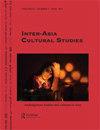The right to ecology: Rohingya refugees and citizens contest over natural resources in Bangladesh
IF 0.4
4区 社会学
Q4 ANTHROPOLOGY
引用次数: 1
Abstract
ABSTRACT More than a million Rohingya have fled Myanmar to live in Bangladesh, mostly in Cox’s Bazar district. The government has been praised worldwide for sheltering them, but this enormous influx has strained its limited resources. As the host communities struggle with the Rohingya for control over and access to the scarce natural resources they depend on for their livelihood — land, water, agriculture, and forests — tension and conflict arise. The host community members perceive that the government and aid agencies prioritize the Rohingya over the host communities in allocating resources, exacerbating their resentment. I argue that although both the locals and the Rohingya are poor and marginalized, as citizens, the locals have a stronger claim to environmental citizenship and rights to state resources. Any ecological policies taken towards the safeguarding of resource usage rights of the Rohingyas should also be inclusive and should give equal consideration to the local host community members.生态权利:孟加拉国罗兴亚难民和公民争夺自然资源
一百多万罗兴亚人逃离缅甸,来到孟加拉国,其中大部分居住在科克斯巴扎尔地区。政府因收容难民而受到全世界的赞扬,但大量涌入的难民使其有限的资源变得紧张。随着收容社区与罗兴亚人争夺对他们赖以生存的稀缺自然资源(土地、水、农业和森林)的控制权和使用权,紧张局势和冲突随之出现。收容社区成员认为,政府和援助机构在分配资源时优先考虑罗辛亚人,而不是收容社区,这加剧了他们的怨恨。我认为,虽然当地人和罗兴亚人都很穷,而且被边缘化,但作为公民,当地人有更强的环境公民权利和对国家资源的权利。任何旨在保护罗兴亚人资源使用权的生态政策都应具有包容性,并应平等考虑当地收容社区成员。
本文章由计算机程序翻译,如有差异,请以英文原文为准。
求助全文
约1分钟内获得全文
求助全文
来源期刊

Inter-Asia Cultural Studies
Multiple-
CiteScore
0.90
自引率
20.00%
发文量
22
期刊介绍:
The cultural question is among the most important yet difficult subjects facing inter-Asia today. Throughout the 20th century, worldwide competition over capital, colonial history, and the Cold War has jeopardized interactions among cultures. Globalization of technology, regionalization of economy and the end of the Cold War have opened up a unique opportunity for cultural exchanges to take place. In response to global cultural changes, cultural studies has emerged internationally as an energetic field of scholarship. Inter-Asia Cultural Studies gives a long overdue voice, throughout the global intellectual community, to those concerned with inter-Asia processes.
 求助内容:
求助内容: 应助结果提醒方式:
应助结果提醒方式:


